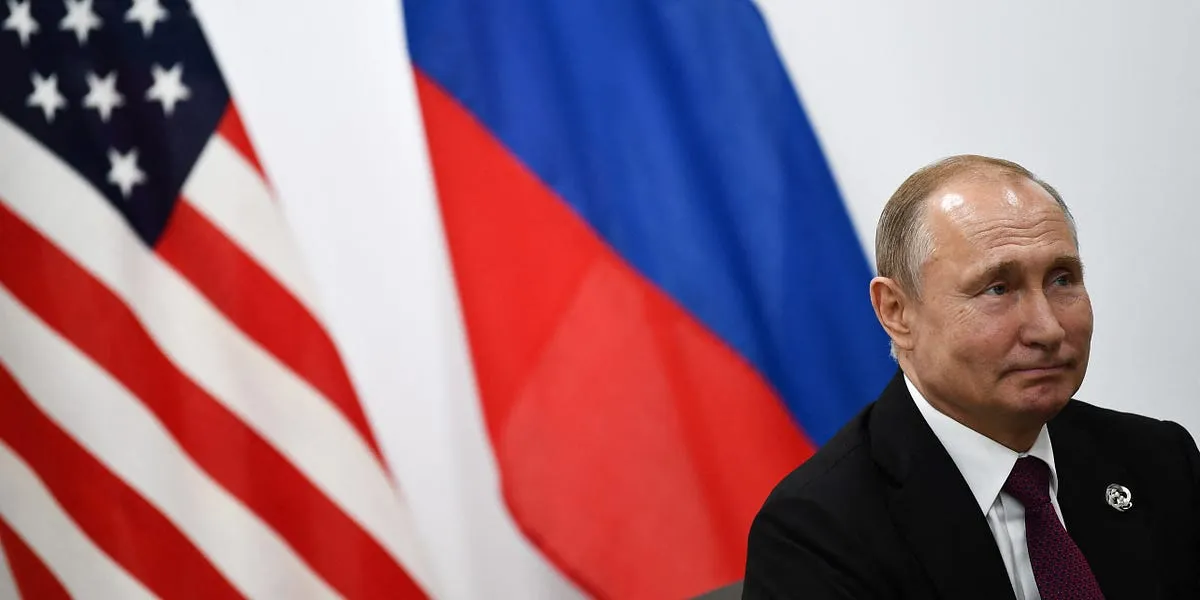
Just a few weeks ago, political commentators began discussing former President Donald Trump’s sudden pivot regarding the ongoing conflict between Ukraine and Russia. This shift included promises of significant aid to Ukraine and tough sanctions against Russia. Trump’s rhetoric was strong, calling out the “bullshit thrown at us” by Vladimir Putin, while simultaneously criticizing the “nice phone calls” that preceded bombings in Ukrainian cities. The narrative shifted from a fifty-day deadline for peace negotiations to a more urgent ten- to twelve-day ultimatum that has recently expired. However, this apparent pivot seems to have reverted back to a more familiar stance, centered around diplomatic efforts led by Trump’s real estate associate and golf buddy, Steve Witkoff.
Witkoff’s recent trip to Moscow was described by Trump on Truth Social as a “highly productive meeting” with Putin. This description raises eyebrows, especially considering the unclear nature of the deal offered to Witkoff. Initial reports indicated a favorable outcome, but the specifics seemed convoluted. In a bizarre twist, Witkoff was also treated to a massive cheburek meat pie, which captured the attention of Russian media, highlighting the peculiar nature of this diplomatic engagement. Additionally, Witkoff returned with an Order of Lenin awarded to a CIA deputy director whose son was killed in the Donbas, prompting speculation about whether Putin is intentionally mocking Trump.
Now, Trump and Putin are set to convene in Alaska this Friday, a choice of location that raises questions about its implications. Trump’s initial idea for a three-way summit involving Ukrainian President Volodymyr Zelensky has seemingly been sidelined. Vice President JD Vance indicated on Fox News that logistical issues are causing delays in arranging for Zelensky to join the meeting. This summit could represent a stark departure from a guiding principle articulated by Western leaders: “Nothing about Ukraine without Ukraine.” Political scientist Vladimir Pastukhov likened the summit to “two mob bosses” discussing Ukraine’s future without its leaders present.
While specifics of the proposed settlement remain vague, Trump has suggested the idea of “swapping territories to the betterment of both” nations. This implies that Ukraine may have to concede territory that Russia has not yet captured in exchange for areas currently occupied by Russia. However, such unilateral land concessions are already being rejected by Zelensky, who has consistently opposed any compromises since the start of the invasion.
The mere existence of this summit presents a significant advantage for Putin, as it grants him a platform to negotiate directly with the President of the United States, a goal he has pursued since the conflict began. As noted by foreign policy analyst Ekaterina Kotrikadze, a one-on-one meeting with Trump is undeniably a diplomatic win for Putin. Many analysts believe that being recognized as an equal by the U.S. President has been a crucial aspect of Putin's agenda, particularly in the context of the war in Ukraine.
As discussions continue, some Ukrainian commentators express cautious optimism that current negotiations do not overtly include demands for a full surrender of Ukrainian sovereignty. This includes avoiding drastic military reductions or restrictions on Ukraine’s future alliances. However, the absence of these demands in discussions does not imply Russia is abandoning them. Ukrainian leaders may soon face the difficult choice of either accepting an unfavorable peace deal or becoming scapegoats for its failure, risking the limited U.S. support currently extended to Ukraine.
On Fox News, Vance bluntly stated that the summit represents a step toward fulfilling Trump’s desire to leverage U.S. economic power to end what he inaccurately refers to as a “conflict.” Vance's comments suggest a withdrawal of U.S. support for Ukraine, emphasizing that European nations should take more responsibility in funding the war. Despite rising American public support for continued assistance to Ukraine, Vance’s remarks reveal a troubling narrative that minimizes the severity of the situation.
The upcoming summit in Alaska could become a moment of national disgrace for the United States, particularly if Trump’s actions are interpreted as capitulating to Putin’s agenda. Several interpretations of Trump’s motivations exist, ranging from being easily manipulated by Putin to pursuing a misguided quest for a Nobel Peace Prize. As the situation develops, it remains to be seen whether this summit will become another low point in U.S.-Ukraine relations, drawing sharp criticism from both domestic and international observers.